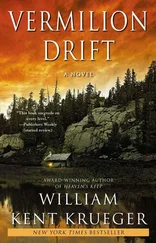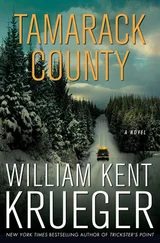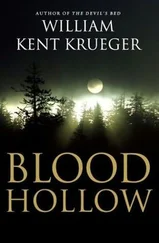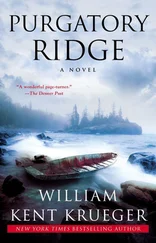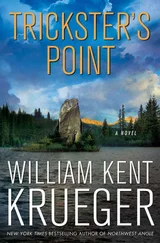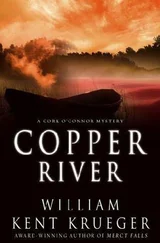William Krueger - Mercy Falls
Здесь есть возможность читать онлайн «William Krueger - Mercy Falls» весь текст электронной книги совершенно бесплатно (целиком полную версию без сокращений). В некоторых случаях можно слушать аудио, скачать через торрент в формате fb2 и присутствует краткое содержание. Жанр: Криминальный детектив, на английском языке. Описание произведения, (предисловие) а так же отзывы посетителей доступны на портале библиотеки ЛибКат.
- Название:Mercy Falls
- Автор:
- Жанр:
- Год:неизвестен
- ISBN:нет данных
- Рейтинг книги:4 / 5. Голосов: 1
-
Избранное:Добавить в избранное
- Отзывы:
-
Ваша оценка:
- 80
- 1
- 2
- 3
- 4
- 5
Mercy Falls: краткое содержание, описание и аннотация
Предлагаем к чтению аннотацию, описание, краткое содержание или предисловие (зависит от того, что написал сам автор книги «Mercy Falls»). Если вы не нашли необходимую информацию о книге — напишите в комментариях, мы постараемся отыскать её.
Mercy Falls — читать онлайн бесплатно полную книгу (весь текст) целиком
Ниже представлен текст книги, разбитый по страницам. Система сохранения места последней прочитанной страницы, позволяет с удобством читать онлайн бесплатно книгу «Mercy Falls», без необходимости каждый раз заново искать на чём Вы остановились. Поставьте закладку, и сможете в любой момент перейти на страницу, на которой закончили чтение.
Интервал:
Закладка:
Mercy Falls
William Kent Krueger
HOW IT ENDS
She woke naked on the bed, in a room she didn’t recognize, her mind as clear of memory as the sky outside her window was of clouds. A huge pillow that smelled faintly of lavender cradled her head. She was too warm and drew back the covers so that she lay exposed on the white sheet like a delicacy on a china plate.
She tried to sit up, far too quickly, and the room spun. A minute later, she tried again, this time rising gradually until she could see the whole of the great bedroom. The bed itself was a four-poster with a canopy. The armoire a few feet distant was the color of maple syrup and carved with ornate scrolling. On the walls, in elegant, gilt-edged frames, hung oil paintings of Mediterranean scenes, mostly with boats and angry, blue-black seas. The magnificent red of the Persian rug matched the thick drapes drawn back to let in the morning light. None of this was familiar to her. But there was one detail that struck a welcome chord: an explosion of daisies in a yellow vase on the vanity. Daisies, she remembered, had always been her favorite flowers.
A clean, white terry cloth robe had been neatly laid out at the foot of the bed, but she ignored it. She walked to the daisies and touched one of the blossoms. Something about the fragility of the petals touched her in return and made her sad in a way that felt like grieving.
For whom? she wondered, trying to nudge aside the veil that, at the moment, hung between her perception and all her understanding. Then a thought occurred to her. The birds. Maybe that was it. She was grieving for all the dead birds.
Her eyes lifted to the vanity mirror. In the reflection there, she saw the bruises on her body. One on her left breast above her nipple, another on the inside of her right thigh, oval-shaped, both of them, looking very much like the blue ghosts of tooth marks.
As she reached down and gingerly touched the tender skin, she heard firecrackers go off outside her window, two of them. Only two? she thought. What kind of celebration was that?
She put on the robe, went to the door, and opened it. Stepping out, she found herself in a long hallway with closed doors on either side, her only companions several tall standing plants that were spaced between the rooms like mute guardians. At each end of the hall, leaded windows with beveled glass let in enough daylight to give the emptiness a sense of benign well-being that she somehow knew was false. She crept down the hallway, listening for the slightest sound, feeling the deep nap of the carpet crush under the soles of her bare feet. At last she reached a staircase that wound to the lower level. She followed the lazy spiral unsteadily, her hand holding to the railing for balance, leaving moist fingerprints on the polished wood that vanished a moment after her passing.
She stood at the bottom of the stairway, uncertain which way to turn. To her right, a large room with a baby grand piano at its center, a brick fireplace, a sofa and loveseat of chocolate brown leather. To her left, a dining room with a huge crystal chandelier and a table large enough for a banquet. Sunlight from a long window cleaved the table, and in the bright gleam sat another vase full of daisies. Drawn by the smell of freshly brewed coffee, she moved through the dining room to the opened door of the kitchen beyond.
A carafe of orange juice sat on the counter near the sink, and next to it a glass, poured and waiting. The smell of the coffee came from a French-press coffeemaker that sat on a large butcher-block island. An empty cup and saucer had been placed on the block, as if she were expected. A book lay there, too, opened to a page that began, I couldn’t sleep all night; a foghorn was groaning incessantly in the Sound, and I tossed half-sick between grotesque reality and savage, frightening dreams.
The sliding glass door that overlooked the veranda was drawn back, letting in the morning air, and she walked across the cool black and white kitchen tiles to the doorway. From there, she could see the back of the estate with its pool set into the lawn like a piece of cut turquoise. Beyond was the blue-gray sweep of a great body of water that collided at the horizon with a cornflower sky. Beside the pool stood a man in a yellow windbreaker with the hood pulled up. Although she couldn’t see his face, there was something familiar in his stance. She stepped outside, not bothering to slide the door closed behind her.
It was a chilly morning. The cold marble of the veranda made her feet ache, but she paid no attention, because something else had caught her eye. A crimson billow staining the blue water. She descended the steps and followed a limestone walk to the apron of the pool.
The body lay on the bottom, except for the arms, which floated free, lifted slightly as if in supplication. The swimming trunks were white, the skin tanned. She couldn’t see the wounds, only the blood that leaked from somewhere underneath, gradually tinting the turquoise water a deep rose.
The standing man turned his head slowly, as if it were difficult, painful even, for him to look away from death. The sun was at his back, his face shadowed, a gun in his hand.
She recognized him, and the thought of what he’d just done pulled her heart out of her chest.
“Oh, Cork, no,” she whispered.
When he heard his name, his hard, dark eyes grew soft. Corcoran O’Connor stared at his wife, at her clean robe, her bare feet, her hair still mussed from a night she barely remembered.
“Jo,” he said, “I came to bring you home.”
1
They hit the skunk just outside of town, and after that, they drove with the windows down. It didn’t help much.
“I know what you’re thinking,” Deputy Marsha Dross said.
“How could you know what I’m thinking?” Cork replied.
“Because it’s what I’d be thinking if I were you.”
“And what’s that?”
“That if I’d let you drive, this wouldn’t have happened.”
“You’re not me,” Cork said. “And that’s not what I’m thinking.”
“What are you thinking?”
“Just wondering if there’s enough money in the budget for a new Land Cruiser.” He put his head out the window and let the air clear his nose.
The road they were traveling had been traveled before by generations of Ojibwe and Voyageurs. It connected the Blueberry River with Iron Lake and had been an important passage in the days of the fur trade. The French had called it Portage du Myrtille, Blueberry Portage. To the Ojibwe, whom the white men often called Chippewa but who preferred the name Anishinaabe, which meant Original People, it was known as Maanadamon-Bad Trail-because it was a long portage with stretches of marsh and deep mud. And skunks. To the engineers who, in the mid twentieth century, had widened and graded it and laid down asphalt, it was called simply County Road 23. They’d killed the beauty of the names, but they hadn’t been able to destroy the stunning grandeur of the land through which it ran, the great Northwoods of Minnesota.
The asphalt ended at the beginning of the Iron Lake Reservation. On the rez, the wide shoulders disappeared and the road became a narrow gravel track following a clear stream that threaded its way through vast stands of pine and rugged hills topped with birch trees and spruce.
As Dross slowed down, the skunk smell grew worse.
“Maybe I should take it through a creek or something,” she suggested.
“With skunk, I think you just have to let it wear off. Maybe we’ll put this unit out to pasture for a while.” He scanned the road in front of them, looking for the turn he knew was coming up.
Autumn had started out cold that year. The sugar maples and sumac had turned early, a deep crimson. At sunrise, the eastern sky was often the color of an open wound and sometimes on crisp mornings the frost that lay over everything reflected the sky, and the whole land appeared to bleed. Warm weather returned in the first week of October, and for the past few days it had felt almost like June again.
Читать дальшеИнтервал:
Закладка:
Похожие книги на «Mercy Falls»
Представляем Вашему вниманию похожие книги на «Mercy Falls» списком для выбора. Мы отобрали схожую по названию и смыслу литературу в надежде предоставить читателям больше вариантов отыскать новые, интересные, ещё непрочитанные произведения.
Обсуждение, отзывы о книге «Mercy Falls» и просто собственные мнения читателей. Оставьте ваши комментарии, напишите, что Вы думаете о произведении, его смысле или главных героях. Укажите что конкретно понравилось, а что нет, и почему Вы так считаете.

